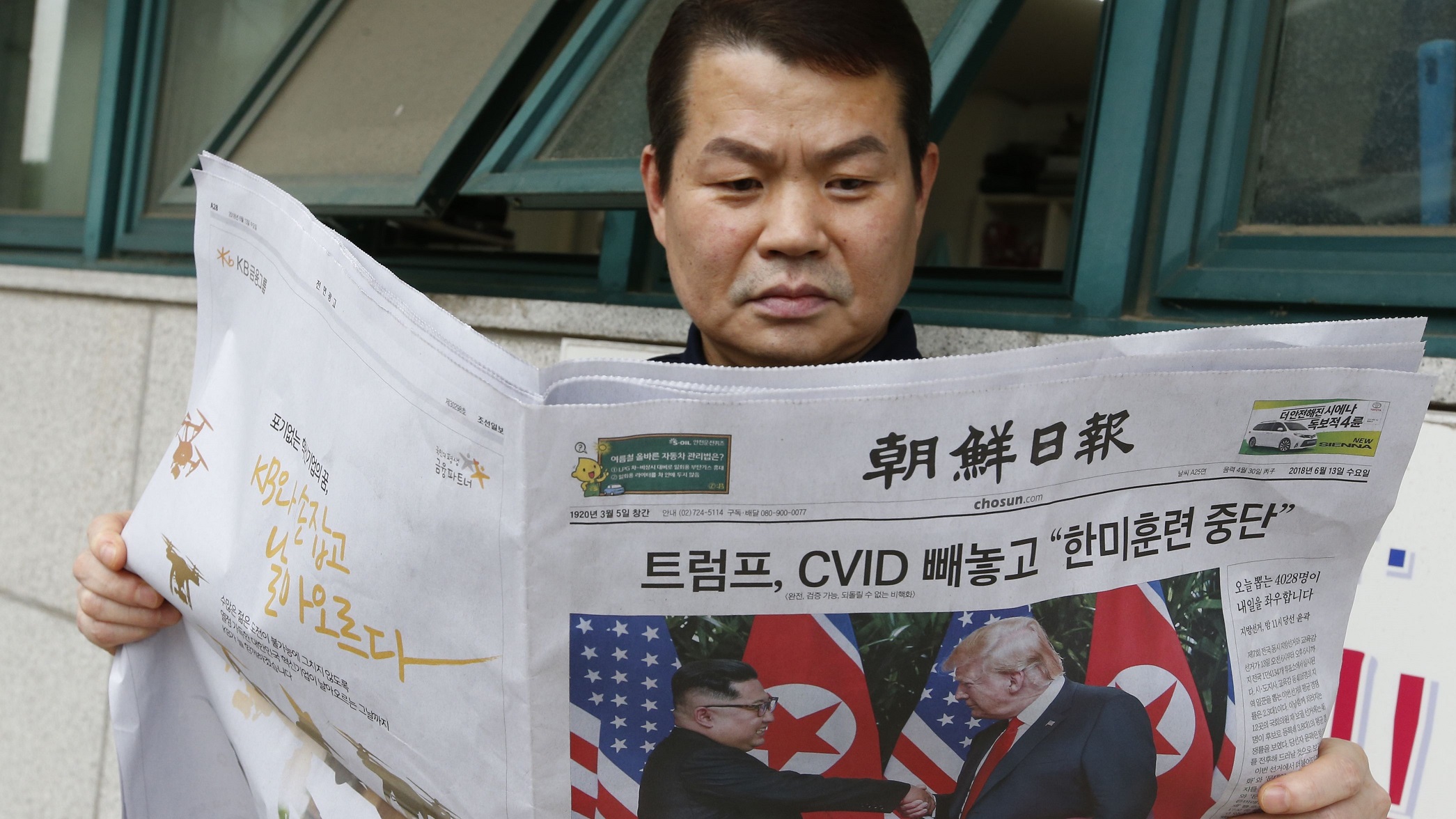North Korean Press Gleeful After Trump-Kim Summit, Other Asian Media Infuriated
By Patrick Frater
LOS ANGELES (Variety.com) – North Korea’s government-controlled media declared victory for Kim Jong-un following his meeting with President Trump, claiming that the U.S. would lift sanctions against the isolated country and that the two leaders planned to visit each other’s capital cities.
North Korean coverage heaped praise on Kim, focusing on his statesmanship and the gains it said he achieved for the Democratic People’s Republic of Korea, as the country is officially known. The state-controlled newspaper “Rodong Sinmun” called the meeting “epoch-making” and “a candid exchange of views,” flattering both leaders with the kind of language that is familiar in Kim’s one-party state and that Trump has also shown a liking for.
“Chairman Kim Jong Un highly praised the [U.S.] president’s will and enthusiasm to resolve matters in a realistic way through dialogue and negotiations, away from the hostility-woven past,” the paper said, adding: “Trump expressed his intention to halt the U.S.-South Korea joint military exercises, which the DPRK side regards as provocation, over a period of goodwill dialogue between the DPRK and the U.S., offer security guarantees to the DPRK and lift sanctions against it along with advance in improving the mutual relationship through dialogue and negotiation.”
However, the assertion that sanctions would be lifted contradicted what Trump said at a news conference following Tuesday’s historic summit in Singapore. Trump said that sanctions would stay in place until began to denuclearize.
Trump did say that U.S.-South Korean military exercises would be halted at the news conference, but that was not included in the official communique that he and Kim had signed. Trump later justified the end of “war games” by saying that ending the expense of flying bombers for six hours from Guam would represent a large cost savings to the U.S.
But the declaration shocked governments in South Korea and Japan, which regard the exercises as a significant part of their military alliance with the U.S. and which had not been consulted over their stoppage.
North Korean media implied that the U.S. needed to make the next move. “Kim Jong Un clarified the stand that if the U.S. side takes genuine measures for building trust in order to improve the DPRK-U.S. relationship, the DPRK, too, can continue to take additional goodwill measures of next stage commensurate with them,” the Rodong Sinmun said.
The vagueness of the communique, which contained no specifics in its pledge to seek peace on the Korean peninsula, and the ability to reinterpret what was agreed in the two leaders’ six hours of meetings infuriated other media in Asia.
“Trump spoke of the deal as being ‘very comprehensive’ but it is vague and lacking in details, requiring rounds of future negotiation to flesh out,” said Hong Kong-based South China Morning Post. “It could be a decade or more before the peninsula can be determined to be nuclear-free.”
South Korean media opinions ranged from cautious to angry. A front-page editorial in the hawkish Korea Times asked in its headline: “Mr. Trump, where’s the beef?” It said Trump had scored a photo opportunity but failed to deliver the key agreement that he said he wanted.
“For U.S. President Donald Trump, the June 12 summit in was supposed to be all about the denuclearization of North Korea. By that standard, Trump almost flunked but got by with an unbearable D. There is a chance his D can be upgraded to a passable C or proud B,” the editorial said. “Prior to the meeting with , a dictator less than half his age, Trump pledged to get the North to commit itself to the complete, verifiable and irreversible dismantling (CVID) of the North’s nuclear program….On top of that, a timetable for dismantling would come. Trump’s priority issue got noted only as the third out of four bullet-point agreements.”
The English-language daily “The Japan Times,” was also surprised by the vagueness of the summit communique and what else Trump might have given away. “Trump explicitly acceded to two of [North Korea’s] top demands at summit,” the paper said on its front page, referring to the military exercises and sanctions relief.
Others in Asia said that China also emerged as a big winner, because North Korea, its nearly bankrupt client state, may get some economic relief if sanctions are diluted and because an end to war games on China’s doorstep could point to a weakening of American resolve in East Asia. The U.S. currently pledges military support to Japan, South Korea and Taiwan.

